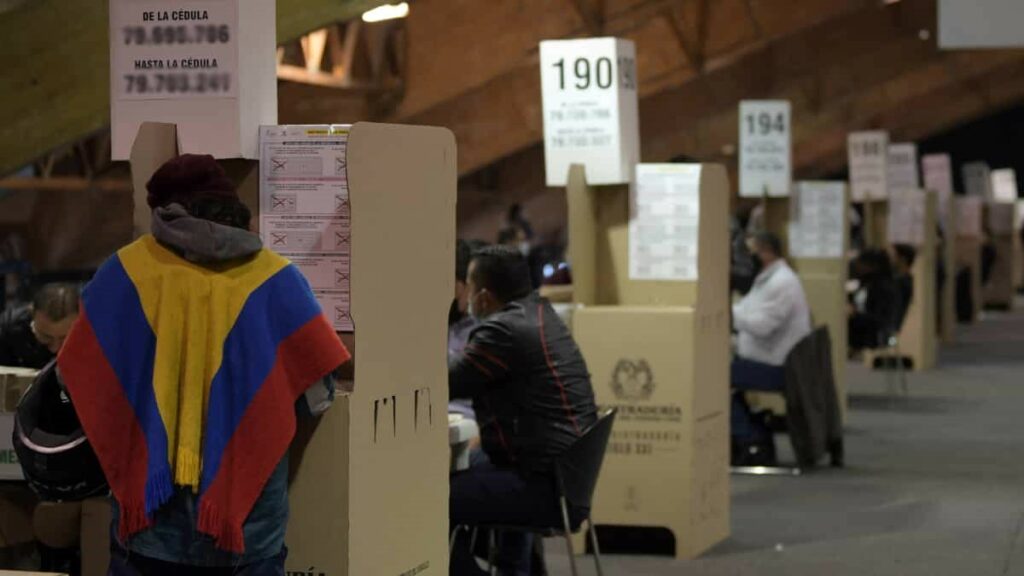And the day of the election of the seats for peace finally arrived, after a tortuous road, on March 13 the 16 Special Transitory Circumscriptions for Peace were elected for the first time, a process that culminates in the middle of multiple controversies, questioning some of those elected and the Government of Iván Duque for not accompanying the process.
The participation of the communities in this extraordinary process was very similar to the general participation of the citizenry in the Congress elections, the percentage of abstention was over 50%. It is important to take this into account, as it can be interpreted as the missed opportunity for communities to find valid scenarios for participation in Congress, from which to develop the legislative activity and political control required for the territories to overcome the historical causes of backwardness, violence and poverty in which they are submerged due to the lack of political will of policymakers.
In addition, the low participation of the communities allowed the traditional political classes and corrupt political sectors to “take advantage” of the communities’ lack of motivation to “easily” impose their candidates, as an extension of their family or political clans in these positions.
Once the results and the general list of elected persons are known, it must be said that the election process for these special seats is quite consistent with the purpose of a government that never had any interest in guaranteeing an effective participation process and much less in allowing the communities affected by the conflict to have access to these “seats for peace”.
If one takes into account elements such as the series of difficulties in the approval of the legislative act that created the seats, a regulatory process that tended to favor the participation of different political sectors (except the victims), the situation of fear and anxiety due to armed violence in many territories where the seats were elected, as well as the contempt with which the government assumed important issues such as campaign financing or the precarious pedagogy in those rural territories, the result could not have been different: apathy of the communities to participate and the general ignorance of the candidates and the way to participate in the election of the seats, a situation that clans and traditional parties took advantage of to keep the seats. The government failed to promote a more decisive pedagogical action to guide and facilitate participation in this process.
In the middle of this panorama, the four-month electoral process (between December 2021 and March 13, 2022), the campaigns of the candidates for the 16 seats for peace took place in a hostile environment and lacked guarantees from the government, which was not even able to comply with its own regulations, as it had established economic support and access to the media for the campaigns, aid that never arrived due to demands that were difficult to achieve for the candidates of the community processes. Perhaps for this reason, the campaigns were captured by the traditional political parties through practices they have historically developed in the electoral processes. At the same time, some of these campaigns were taken over by people inclined to paramilitary groups and, in this sense, they promoted an electoral campaign with threats and intimidations on the electorate, which, in the middle of confusion, ignorance and fear, ended up supporting candidates that do not offer any guarantee, neither for the consolidation of development plans that would allow the regions to get out of their backwardness, nor for the consolidation of development plans that would allow them to get out of the violence.
The analysis of the results shows that several of those elected have close connections with sectors linked to politicking, clientelism and corruption, as evidenced by complaints filed in the areas of Arauca, Catatumbo, Putumayo, southern Córdoba, southern Tolima and Urabá Antioqueño. Perhaps the most serious issue is that people with links to criminal groups were able to infiltrate the process, among other things, because of the facilities provided by the administration to grant recognition as victims to those who were not.
Nevertheless, what could seem a bleak picture in this first experience of the election of the seats for peace, there are important lessons and learnings for social organizations committed to the construction of peace in the country. In the first place, at least 7 of the seats correspond to community processes linked to the defense of land, territory and the struggle for peace, who will be able to join with the Pacto Histórico members and other progressive sectors in Congress to make alliances that will allow them to fulfill the objective initially set with the 16 seats for peace.
A lesson, no less important, remains for the social and popular movement of the territories where these special districts for peace are located, basically it is about preparing the conditions for the elections of 2026, to overcome the atomization that existed in this first experience, the dispersion of candidacies from democratic and popular sectors did not help to consolidate unitary campaigns that would allow to add enough votes to win these seats and from them continue the struggle to overcome the causes that generate violence.
Text: Alfonso Castillo
Photo: AFP

